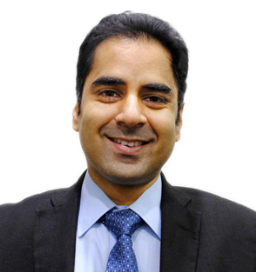Scientific Program

Abhijit Bopardikar
ReeLabs Pvt. Ltd., India
Title: Novel techniques of improving the efficiency of stem cell treatment in regenerative medicine
Biography:
Abhijit Bopardikar is a doctor, researcher, philanthropist and a serial entrepreneur. He is the owner of large chain of Diagnostic Centers, blood banks and health centers in the city of Mumbai, India. He is also the promotor and director of ReeLabs Private Limited, one of the largest stem cell enterprises in Asia with technology, expertise and experience of banking over 100,000 stem cell samples from ten human sources and involved in the treatment of over 15,000 cases using their proprietary stem cell technology. He has pioneered 15 proprietary technologies in cell medicine and initiated three FDA approved clinical trials for stem cell applications in Ischemic limb, Diabetes Mellitus and Liver Cirrhosis. He has also been involved in authoring over 250 international publications and owner of 6 patents in India, US, UK and EU w.r.t. his inventions in cellular medicine. He is often called upon to conduct peer review for articles related to blood banking, tissue banking and cellular medicine before publication in reputed journals. He is also part of the expert panel in conjunction with various regulatory authorities of his country whilst drafting laws and regulations in cellular medicine. He is also the winner of many prestigious national and international awards. He is generally the keynote speaker in various international conferences on stem cells, bio-banking and cellular medicine. He is currently the joint Secretary of Stem cell society of India and Federation of Bombay Blood Banks, Mumbai, India. Both the prestigious organizations of India, dealing in blood banking and cellular medicine.
Abstract
Analysis of numerous clinical trial results in regenerative medicine generally shows low level of efficacy with stem cells due to which very few trials actually reach culmination. This is due to the fact that most researchers do not take into account the importance of stem cell microenvironments in the treatment design, use an insufficient number or type of stem cells, and/or ignore the possibility of using exosomes in the complex therapy of patients. Proliferation, differentiation and engraftment of stem cells (SCs) require a specific, pre-defined microenvironment called ‘stem cell niche’. For in vivo modulation of organ-specific niches during SCs transplantation, appropriate tissue based growth factors (including Placental tissue extracts - PTEs and Fetal Tissue extracts - FTEs) can improve outcomes significantly. Mesenchymal stem cell (MSC) and especially hematopoietic stem cell (HSC) culture, enumeration and amplification provide adequate number of cells for optimum results. Additionally growth factors and exosomes can induce the phenotypic modifications of SCs. We investigated the content of growth factors in FTEs and PTEs; studied the efficacy of adding these in patients who did not respond well to conventional SC treatment and optimized results considerably. We showed impact of PTEs/FTEs for remodeling the SC niche in treatment of liver cirrhosis and non-healing wounds and ulcers in patients. Transplantation of SCs with PTEs/ FTEs showed efficacy in 75% cases of liver cirrhosis, characterized by significant decrease of liver fibrosis, portal hypertension, ascites, and biochemical markers of liver damage. In patients with chronic non-healing wounds, administration of PTEs/FTEs activated the wound epithelialization resulting in complete wound healing. Total wound closure observed with conservative treatment was in 4% of patients; with autologous bone marrow stem cells treatment in 59% of patients; and by remodeling the stem cell niche (stem cells + PTEs + FTEs) was seen in a significant 75% of patients. Death from cardiovascular causes observed was in 31, 11, and 1% patients respectively. We also created a novel Rejuvenation (anti-aging) Program, which included infusion with SCs and exosomes of cord blood plasma. Global Aesthetic Improvement Scale after this Rejuvenation Program showed optimal cosmetic improvement of 78.9% and significant reduction of biological age and Frailty Index.
- Gene Editing
- Cancer genomics
- Molecular Biology
- Plant Genomics and Molecular Plant Sciences
- Stem Cell Biology
- Structural Biology
- Human Genomics
- Clinical Genomics
- Bioinformatics in Genomics
- Genome Medicine
- Microbial Genomics
- Genome Engineering

